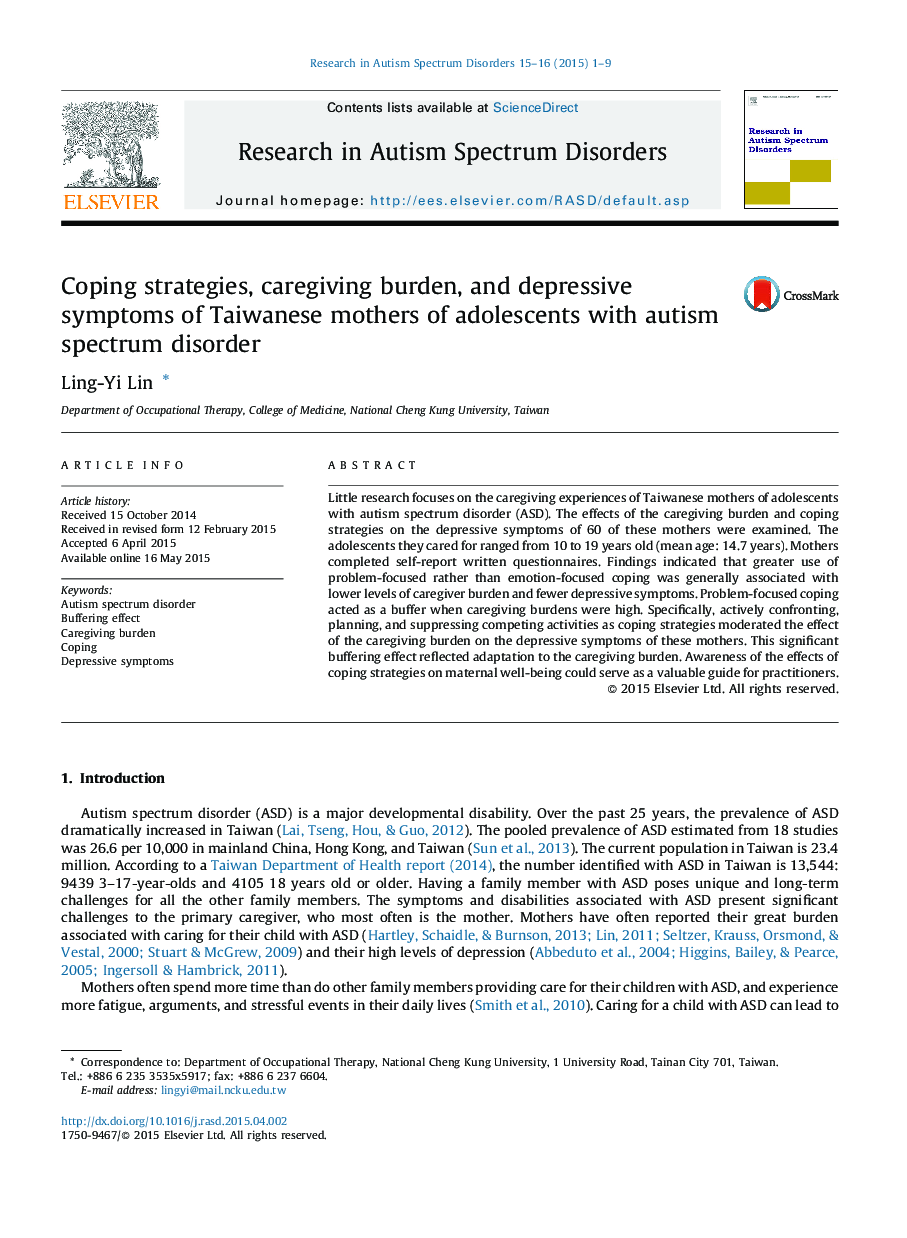| Article ID | Journal | Published Year | Pages | File Type |
|---|---|---|---|---|
| 370070 | Research in Autism Spectrum Disorders | 2015 | 9 Pages |
•Mothers of adolescents with ASD perceived their caregiving burden as heavy and symptoms of depression as severe.•Greater use of problem-focused coping was associated with lower levels of caregiver burden and fewer depressive symptoms.•Problem-focused coping acted as a buffer when caregiving burdens were high.•Problem-focused coping was more protective against symptoms of depression.•Problem-focused coping was the main coping style for Taiwanese mothers of adolescents with ASD.
Little research focuses on the caregiving experiences of Taiwanese mothers of adolescents with autism spectrum disorder (ASD). The effects of the caregiving burden and coping strategies on the depressive symptoms of 60 of these mothers were examined. The adolescents they cared for ranged from 10 to 19 years old (mean age: 14.7 years). Mothers completed self-report written questionnaires. Findings indicated that greater use of problem-focused rather than emotion-focused coping was generally associated with lower levels of caregiver burden and fewer depressive symptoms. Problem-focused coping acted as a buffer when caregiving burdens were high. Specifically, actively confronting, planning, and suppressing competing activities as coping strategies moderated the effect of the caregiving burden on the depressive symptoms of these mothers. This significant buffering effect reflected adaptation to the caregiving burden. Awareness of the effects of coping strategies on maternal well-being could serve as a valuable guide for practitioners.
